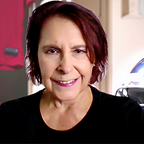Dr. Sapna Shah-Haque on How Burnout is Affecting Healthcare
Dr. Sapna Shah-Haque is an internal medicine physician in the state of Kansas. Despite our being from two different countries (I am from Canada), the problems in healthcare are universal to most western countries.
Medicine is a Commitment
People might think they will be a doctor. Their parents might want them to be doctors. In reality, the schooling alone can take up to a decade. For Dr Shah-Haque, it was ten years.
That’s a lot of student loans.
So, you finish medical school, and you get your first shot after interning, your student loans are still due, all hundreds of thousands of dollars' worth. Practicing medicine as a physician is not going to make that go away anytime soon.
Things Were Tight Before Covid
I can speak to the Canadian province where I live. Wait times to emergency care, unless you were having an asthma or heart attack or some other time-sensitive trauma, were over eight hours BEFORE the pandemic.
Covid-19 didn’t just stop the economy and public gatherings. It also stopped elective surgeries and non-emergency medicine. Post-Covid, they’re still catching up.
Hospitals were full. Care for a Covid patient needed more than one person at bedside. People were in respiratory distress around the clock, with so many more waiting to come in.
The stress, the hours, the working conditions were not always ideal before Covid. Post-Covid, when you add in the visceral political divide and a population segment reigning death threats to medical professionals — who should be surprised to see an exodus of staff?
Staff Shortages and Budget Cuts
The thanks that many healthcare professionals received for the onslaught of human trauma they faced every moment of every day was budget cuts, layoffs, and more paperwork.
Of the physicians and nurses who didn’t resign or transfer to another state/province/or country, others were so haunted by the trauma and the thanklessness they received that they took their own lives. Of course, this only added more stress to the staff left behind.
Grabbing Sanity in an Insane World
Of the remaining doctors, it’s not unusual for them to prefer to practice only three days a week. Given the demand, it’s impossible to fill the void, so many of them have stopped killing themselves to try.
There Is Some Hope
Dr. Shah-Haque does see some hope for the future. While it does take nearly ten years to become a doctor, and those transferring from other countries still require schooling to acclimatize to the new system, there are some silver linings.
The new medical recruits bring with them a new lifeblood to inject into a stale and outdated system. There will be new administrators — younger and more current thinking.
Here is the full interview:
-30-
Debbie Elicksen
Writer, Storyteller, Public Relations
lockerroomforgrowth.com; debbieelicksen.com
Links to all media: https://linktr.ee/gr1d1r3n
Please subscribe to my YouTube Channel
